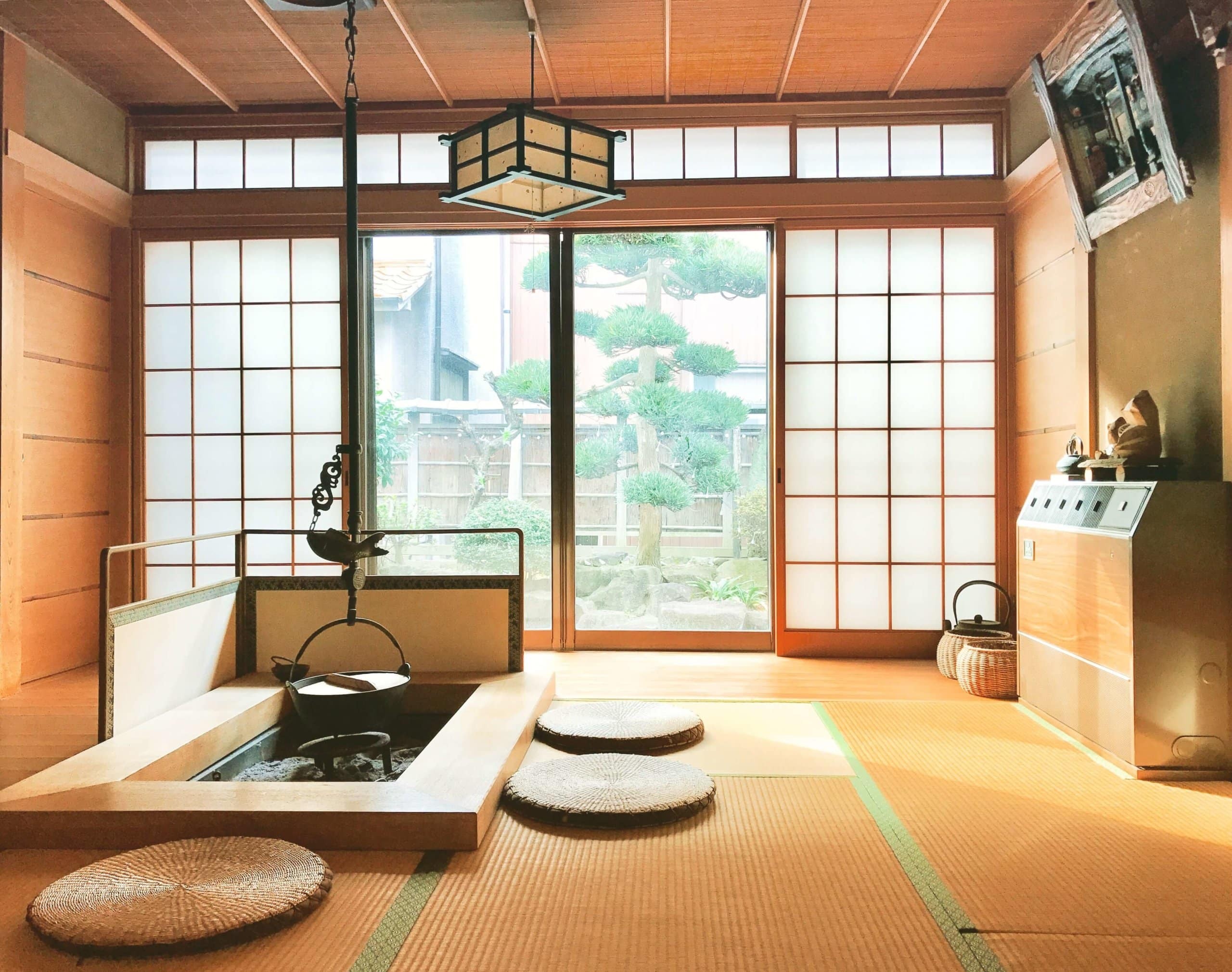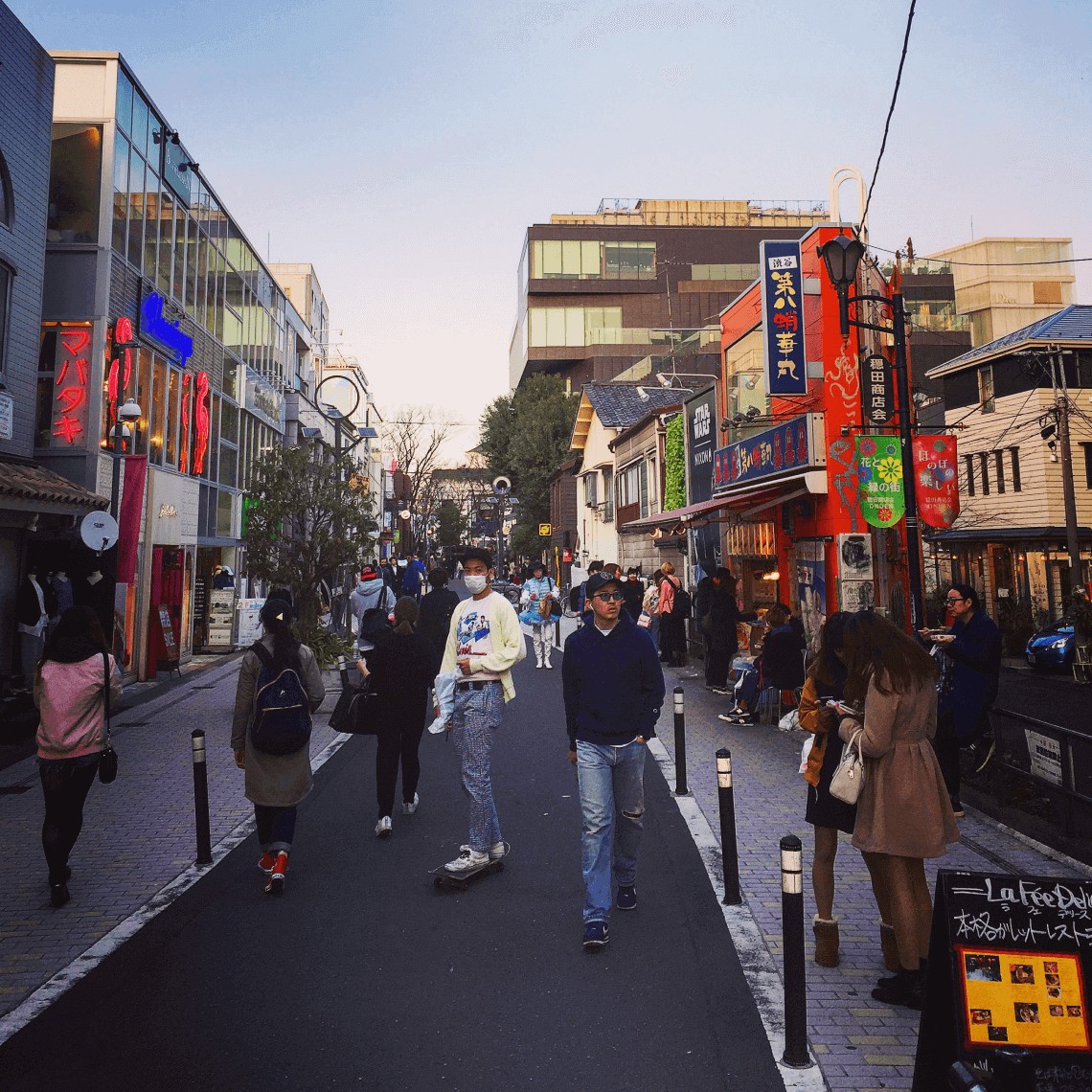Must-have items when traveling to Japan can significantly enhance your experience, and TRAVELS.EDU.VN is here to guide you through the essentials for an unforgettable journey. From practical necessities to cultural must-haves, this guide will ensure you’re well-prepared. Discover the indispensable items that will make your trip smoother, more enjoyable, and deeply immersive, ensuring you make the most of your adventure in Japan.
1. Slip-On Shoes: Embracing Japanese Customs with Ease
Forget struggling with laces and buckles. Slip-on shoes are a must-have for Japan, streamlining your entry into many traditional locations. Many places in Japan, including ryokans (traditional inns), temples, and even some izakayas and restaurants, require you to remove your shoes. Embrace the local culture and save yourself time with footwear that’s both comfortable and convenient.
If you spot tatami mats, it’s time to kick off your shoes. Bringing a pair of socks ensures you’re always respectful, as being barefoot is often considered impolite. And remember, explore vibrant cities like Tokyo and Kyoto on foot, so bring comfortable walking shoes. TRAVELS.EDU.VN can help plan walking tours in these cities.
 Tatami mat room Japan
Tatami mat room Japan
Alt: Traditional tatami mat room in Japan, requiring removal of shoes
2. Light Luggage: Navigating Japan Effortlessly
Packing light is crucial for smooth travels in Japan, where efficiency is key. A smaller, easily portable bag or suitcase will make navigating Japan’s comprehensive railway networks much easier. Japanese trains and train stations, while efficient, aren’t always designed for large suitcases.
A small rolling suitcase and a backpack should be your limit. Train stations can be crowded, and elevators or escalators might be scarce. The Shinkansen offers limited suitcase space that needs to be booked beforehand.
2.1. Takuhaibin: Japan’s Luggage-Forwarding Service
Not willing to pack light? Japan’s luggage-forwarding system, takuhaibin, is a game-changer. This service allows you to send suitcases from hotel to hotel or even to the airport with ease. Yamato Transport offers “hands-free travel,” a reliable option.
Delivery usually takes one to two nights. You can travel with a small overnight bag while your main luggage catches up. It’s especially useful for rural destinations where navigating with large suitcases can be challenging.
2.1.1. How to Use Takuhaibin
Most hotels and ryokans can arrange luggage forwarding for you, so give them a heads-up. Prices range from $15-$30 per suitcase, depending on size and destination. If staying in budget accommodations, convenience stores like conbini can help.
 Bullet train passing Mt. Fuji Japan
Bullet train passing Mt. Fuji Japan
Alt: High-speed bullet train passing Mount Fuji, promoting Japan’s efficient travel
3. Yen: Cash is King in Japan
While credit card acceptance is growing, Japan remains a cash-oriented society, especially in rural areas. Having Japanese yen on hand is essential for small shops, local restaurants, and some transportation options. Japan is known for being exceptionally safe, so carrying cash is generally not a concern.
Obtain yen before you arrive to save time. You can exchange currency at the airport or withdraw from ATMs, but currency exchanges aren’t as common as in other countries. TRAVELS.EDU.VN advises knowing the exchange rate beforehand.
4. Pocket Wi-Fi: Staying Connected Seamlessly
A pocket Wi-Fi device is an absolute must-have for staying connected in Japan. While many hotels and cafes offer Wi-Fi, having your own portable hotspot ensures you have internet access wherever you go. This is invaluable for navigating, translating, and staying in touch with loved ones.
With a pocket Wi-Fi, you can easily use Google Maps to navigate Japan’s complex train system, translate menus, and access essential travel apps. Consider renting one from providers like Pupuru Wi-Fi. TRAVELS.EDU.VN offers discounts on pocket Wi-Fi rentals for its clients.
 mobile phone cell phone iphone boutique japan 1140
mobile phone cell phone iphone boutique japan 1140
Alt: Traveler using a smartphone, highlighting the need for pocket Wi-Fi in Japan
5. Travel Insurance: Ensuring Peace of Mind
Comprehensive travel insurance is crucial to protect yourself from unforeseen events. Emergencies can happen anytime, and having travel insurance can save you from significant financial losses due to cancellations, medical emergencies, or lost belongings.
Choose a policy that covers medical expenses, trip cancellations, and theft. TRAVELS.EDU.VN partners with reputable insurance providers to offer comprehensive coverage options.
6. Fashion and Style: Dressing Respectfully in Japan
You don’t need a new wardrobe for Japan. Instead, consider leaving space for shopping, as Japan offers unique and high-quality fashion. Tokyo is a shopper’s paradise, but Kyoto and Osaka also have cutting-edge and vintage styles.
While fashion standards are high, you don’t necessarily have to dress up. People in Japan value appearance, but eclectic styles are common. Casual dress is acceptable in most situations, though special occasions may require more formal attire.
6.1. Packing for the Weather in Japan
Japan has four distinct seasons, so pack accordingly. Spring and fall are fickle, requiring layers. Check weather forecasts before your trip, especially if visiting different regions, as the weather can vary dramatically.
Spring is known for cherry blossoms, and autumn for vibrant foliage. Be prepared for varied conditions, from warm sunshine to chilly rain. TRAVELS.EDU.VN provides seasonal packing guides tailored to your destinations.
 harajuku cat street shibuya tokyo japan large
harajuku cat street shibuya tokyo japan large
Alt: Fashionable street scene in Harajuku, Tokyo, showcasing Japan’s unique style
7. Passport and Visa: Essential Travel Documents
Ensure your passport is valid for at least six months beyond your trip’s end date. Citizens of many countries don’t need a visa for short tourism stays, but double-check with the Japanese Embassy or Consulate to be sure.
Having at least 2-4 blank visa pages is also wise. Keep copies of your passport and visa separate from the originals. TRAVELS.EDU.VN offers a checklist to ensure all your documents are in order.
8. Essential Extras: Enhancing Your Comfort and Convenience
Pack these additional items for a smoother trip:
8.1. Hand Sanitizer
Hygiene is highly valued in Japan. Carry hand sanitizer to maintain cleanliness, especially when using public transportation or visiting crowded areas.
8.2. Portable Charger
Keep your devices powered up with a portable charger. This ensures you can always access maps, translation apps, and communication tools.
8.3. Universal Adapter
If your devices use a different voltage or plug type, bring a universal adapter to avoid compatibility issues.
8.4. Small Gifts (Omiyage)
Bringing small gifts (omiyage) from your home country is a thoughtful gesture when meeting locals.
9. Apps for Navigation and Translation: Mastering Japan’s Complexities
Navigate Japan effortlessly with these essential apps:
9.1. Google Maps
For accurate navigation and train schedules, Google Maps is indispensable. It helps you navigate Japan’s complex public transportation system.
9.2. Google Translate
Overcome language barriers with Google Translate. It allows real-time translation of text and speech.
9.3. Japan Official Travel App
The Japan Official Travel App offers up-to-date information on destinations, transportation, and emergency services.
10. Comfort Items: Personalizing Your Journey
Bring items that make you feel comfortable and at home. This might include your favorite snacks, a travel pillow, or a good book. These small comforts can make a big difference on long journeys.
Consider bringing noise-canceling headphones for flights and train rides, and a comfortable travel pillow for restful sleep. TRAVELS.EDU.VN recommends personalizing your trip to suit your preferences.
11. First-Aid Kit: Preparedness for Minor Ailments
A small first-aid kit with essentials like pain relievers, band-aids, and any prescription medications is essential. This ensures you’re prepared for minor ailments without having to search for pharmacies.
Include items like motion sickness remedies, antiseptic wipes, and any personal medications. TRAVELS.EDU.VN provides a customizable checklist for your first-aid kit.
12. Japanese Phrases: Embracing Local Communication
Learn a few basic Japanese phrases to enhance your interactions with locals. Simple phrases like “Konnichiwa” (hello), “Arigato” (thank you), and “Sumimasen” (excuse me) go a long way.
Consider downloading a language learning app like Duolingo or Memrise to learn more phrases. TRAVELS.EDU.VN offers a phrasebook with essential Japanese expressions.
 top 5 japanese words and phrases traveler with luggage 1140×760
top 5 japanese words and phrases traveler with luggage 1140×760
Alt: Traveler with luggage, highlighting essential Japanese phrases for travelers
13. Copies of Important Documents: Ensuring Security
Keep copies of your passport, visa, travel insurance, and other important documents in a separate location from the originals. This ensures you have access to essential information even if the originals are lost or stolen.
Consider storing digital copies in a secure cloud storage account. TRAVELS.EDU.VN recommends keeping a copy of your itinerary and emergency contact information.
14. Comfortable Face Mask: Protecting Your Health
In light of recent health concerns, carrying a comfortable face mask is a wise precaution. Wearing a mask is common in Japan, especially during flu season, and it shows respect for public health.
Choose a mask that fits well and is made of breathable material. TRAVELS.EDU.VN advises following local health guidelines during your trip.
15. Portable Water Bottle: Staying Hydrated
Staying hydrated is essential, especially when exploring Japan’s bustling cities and serene landscapes. Carry a portable water bottle to refill throughout the day.
Consider a lightweight, collapsible water bottle to save space. TRAVELS.EDU.VN promotes sustainable travel practices, including reducing plastic waste.
16. Wet Wipes: Maintaining Cleanliness on the Go
Wet wipes are useful for maintaining cleanliness, especially when restrooms may not always have soap and water. They’re also handy for cleaning surfaces on trains or in restaurants.
Choose travel-sized packs for convenience. TRAVELS.EDU.VN recommends biodegradable wipes for eco-conscious travelers.
17. Noise-Canceling Headphones: Enhancing Travel Comfort
Noise-canceling headphones can significantly enhance your travel comfort by blocking out distractions on flights, trains, and in crowded areas.
Choose a pair that is comfortable and has a long battery life. TRAVELS.EDU.VN offers reviews of top-rated noise-canceling headphones.
18. Travel Journal: Capturing Your Memories
Keep a travel journal to record your experiences, thoughts, and observations. This helps you remember the details of your trip and provides a cherished keepsake.
Consider a small, lightweight journal that is easy to carry. TRAVELS.EDU.VN encourages travelers to document their adventures.
19. Adapter for Electronics: Ensuring Device Compatibility
Japan uses Type A and Type B electrical outlets, which may be different from those in your home country. Pack an adapter to ensure your electronic devices can be charged.
Choose a universal adapter that works in multiple countries. TRAVELS.EDU.VN provides information on electrical standards in Japan.
20. Comfortable Backpack: Essential for Day Trips
A comfortable backpack is essential for day trips and exploring cities. Choose a backpack that is lightweight, has multiple compartments, and fits comfortably on your back.
Consider a backpack with padded straps and a water-resistant exterior. TRAVELS.EDU.VN offers a selection of recommended travel backpacks.
21. Japan Rail Pass: Cost-Effective Travel for Tourists
If you plan to travel extensively by train, a Japan Rail Pass can be a cost-effective option. This pass allows unlimited travel on JR trains for a specified period.
Purchase the pass before arriving in Japan, as it is not available for purchase within the country. TRAVELS.EDU.VN offers assistance with purchasing and activating your Japan Rail Pass.
22. Local SIM Card or eSIM: Staying Connected Affordably
A local SIM card or eSIM can provide affordable data and calling options, allowing you to stay connected without incurring high roaming charges.
Purchase a SIM card at the airport or consider an eSIM for easy activation. TRAVELS.EDU.VN provides information on local SIM card providers.
23. Portable Laundry Detergent: Washing Clothes on the Go
Pack a small container of portable laundry detergent for washing clothes on the go. This is especially useful for longer trips or when you want to pack light.
Choose a concentrated formula to save space. TRAVELS.EDU.VN recommends biodegradable laundry detergent.
24. Japanese Snacks: Enjoying Local Flavors
Bring a few of your favorite Japanese snacks to enjoy during your travels. This can be a great way to experience local flavors and stave off hunger between meals.
Consider trying popular snacks like Kit Kat Japan flavors, Pocky, and mochi. TRAVELS.EDU.VN offers a guide to must-try Japanese snacks.
25. Basic Sewing Kit: Repairing Clothing Emergencies
A basic sewing kit can be a lifesaver for repairing clothing emergencies, such as a torn seam or a missing button.
Include needles, thread, buttons, and safety pins. TRAVELS.EDU.VN recommends a compact travel sewing kit.
26. Business Cards: Networking and Professional Interactions
If you’re traveling for business, bring business cards for networking and professional interactions. Exchanging business cards is a common practice in Japan.
Ensure your business cards are printed in both English and Japanese. TRAVELS.EDU.VN provides tips for business etiquette in Japan.
27. Eye Mask and Earplugs: Ensuring Restful Sleep
An eye mask and earplugs can help you get restful sleep on flights, trains, and in hotels. They block out light and noise, allowing you to relax and recharge.
Choose a comfortable eye mask and earplugs that fit well. TRAVELS.EDU.VN offers reviews of top-rated sleep aids.
28. Small Flashlight or Headlamp: Navigating Dark Areas
A small flashlight or headlamp can be useful for navigating dark areas, such as temples, shrines, or rural trails.
Choose a lightweight and compact model with a long battery life. TRAVELS.EDU.VN recommends LED flashlights for energy efficiency.
29. Collapsible Shopping Bag: Eco-Friendly Shopping
Bring a collapsible shopping bag for carrying your purchases. This helps reduce plastic waste and is more convenient than carrying multiple small bags.
Choose a sturdy and lightweight shopping bag. TRAVELS.EDU.VN promotes sustainable travel practices, including reducing plastic consumption.
30. Reusable Chopsticks: Enjoying Meals Sustainably
Bring a set of reusable chopsticks to avoid using disposable chopsticks. This is an eco-friendly option that reduces waste.
Choose a lightweight and durable set of chopsticks. TRAVELS.EDU.VN encourages travelers to adopt sustainable practices.
Sample 7-Day Japan Itinerary Packing List
Based on our expertise at TRAVELS.EDU.VN, here is a sample packing list that considers a balanced itinerary incorporating both urban and rural settings:
| Item | Description | Notes |
|---|---|---|
| Small rolling suitcase | Lightweight and easy to maneuver. | Consider dimensions for carry-on requirements. |
| Minaal bag | Versatile backpack with organizational features. | Ideal for day trips and carrying essentials. |
| Shirts, pants, undergarments | Comfortable and versatile clothing items. | Choose moisture-wicking fabrics for comfort. |
| Socks | Bring enough for each day of the trip. | Ensure socks are hole-free for taking off shoes. |
| Slip-on shoes | Easy to remove and put on, suitable for traditional settings. | Choose comfortable walking shoes. |
| Season-dependent clothes | Varies depending on the time of year (e.g., light jacket, rain gear, thermal layers). | Check weather forecast before packing. |
| Toiletries | Essential personal care items. | Travel-sized containers to meet airline regulations. |
| Passport | Valid for at least six months beyond the trip’s end date. | Keep a copy separate from the original. |
| Japanese yen | Cash for small shops, local restaurants, and transportation. | Obtain before arrival or withdraw from ATMs. |
| Pasmo transport card | Convenient for using public transportation in major cities. | Obtain upon arrival or use a compatible mobile payment app. |
| Pocket Wi-Fi | Portable hotspot for internet access. | Rent in advance and pick up upon arrival. |
| Laptop and charger | For work, entertainment, or communication. | Consider a lightweight model. |
| Smartphone and charger | For navigation, communication, and accessing travel apps. | Ensure it is unlocked and compatible with local SIM cards. |
| Adapter | For charging electronic devices. | Universal adapter suitable for Type A and Type B outlets. |
| Noise-canceling headphones | For reducing noise during flights and train rides. | Choose a comfortable and lightweight model. |
| Headphone adapter jack | For in-flight entertainment systems. | Just in case the entertainment system requires a wired connection. |
| Pen | For filling out customs and immigration cards. | Keep it in your carry-on bag for easy access. |
| Business cards | For professional networking and interactions. | Print in both English and Japanese. |
| Sunglasses | For protecting your eyes from the sun. | Choose a pair with UV protection. |
| Omiyage | Small gifts for hosts or acquaintances. | Consider regional specialties or items unique to your home country. |
This comprehensive checklist ensures you are well-prepared for your 7-day Japan itinerary. Customize it to fit your specific needs and preferences, and enjoy your adventure!
TRAVELS.EDU.VN: Your Partner for Seamless Japan Travel
Planning a trip to Japan can be overwhelming, but TRAVELS.EDU.VN is here to help. We offer personalized itineraries, expert advice, and exclusive deals to make your trip unforgettable.
Contact Us Today
Ready to start planning your dream trip to Japan? Contact TRAVELS.EDU.VN today for a free consultation. Let us handle the details so you can focus on creating memories.
- Address: 123 Main St, Napa, CA 94559, United States
- WhatsApp: +1 (707) 257-5400
- Website: TRAVELS.EDU.VN
Our team of experienced travel experts is ready to assist you with every aspect of your trip, from flights and accommodations to tours and activities. We take the stress out of travel planning so you can enjoy a seamless and unforgettable experience.
Don’t wait any longer to start planning your dream trip to Japan. Contact us today and let us help you create the perfect itinerary!
FAQs: Must-Have Items When Traveling To Japan
Here are some frequently asked questions to help you prepare for your trip to Japan:
- What kind of shoes should I pack for Japan?
- Slip-on shoes are ideal because you’ll often need to remove your shoes in traditional settings. Comfortable walking shoes are also essential for exploring cities.
- Is it better to use cash or credit cards in Japan?
- While credit cards are becoming more widely accepted, Japan is still largely a cash-based society, especially in rural areas.
- Do I need a visa to travel to Japan?
- Citizens of many countries can enter Japan for short-term tourism without a visa, but check the latest requirements with the Japanese Embassy or Consulate.
- What is a pocket Wi-Fi, and why do I need one in Japan?
- A pocket Wi-Fi is a portable hotspot that provides internet access. It’s essential for navigating, translating, and staying connected.
- Why is travel insurance important for a trip to Japan?
- Travel insurance protects you from unforeseen events like medical emergencies, trip cancellations, and lost belongings.
- What should I wear in Japan to be respectful?
- While fashion is diverse, dress modestly and avoid overly revealing clothing. Consider the weather and cultural norms.
- What are some essential apps to download before traveling to Japan?
- Google Maps for navigation, Google Translate for communication, and the Japan Official Travel App for information.
- Should I bring gifts when visiting someone’s home in Japan?
- Yes, bringing small gifts (omiyage) is a thoughtful gesture. Choose items that represent your home country.
- Is it necessary to learn Japanese before visiting?
- While not essential, learning a few basic phrases can greatly enhance your experience and interactions with locals.
- What should I do if I lose my passport in Japan?
- Report the loss to the local police and contact your embassy or consulate for assistance in obtaining a replacement passport.
By packing these must-have items and being well-prepared, you’ll ensure a smoother, more enjoyable, and deeply immersive adventure in Japan. travels.edu.vn is here to support you every step of the way, providing expert guidance and resources to make your dream trip a reality. Contact us today to start planning your unforgettable journey!
